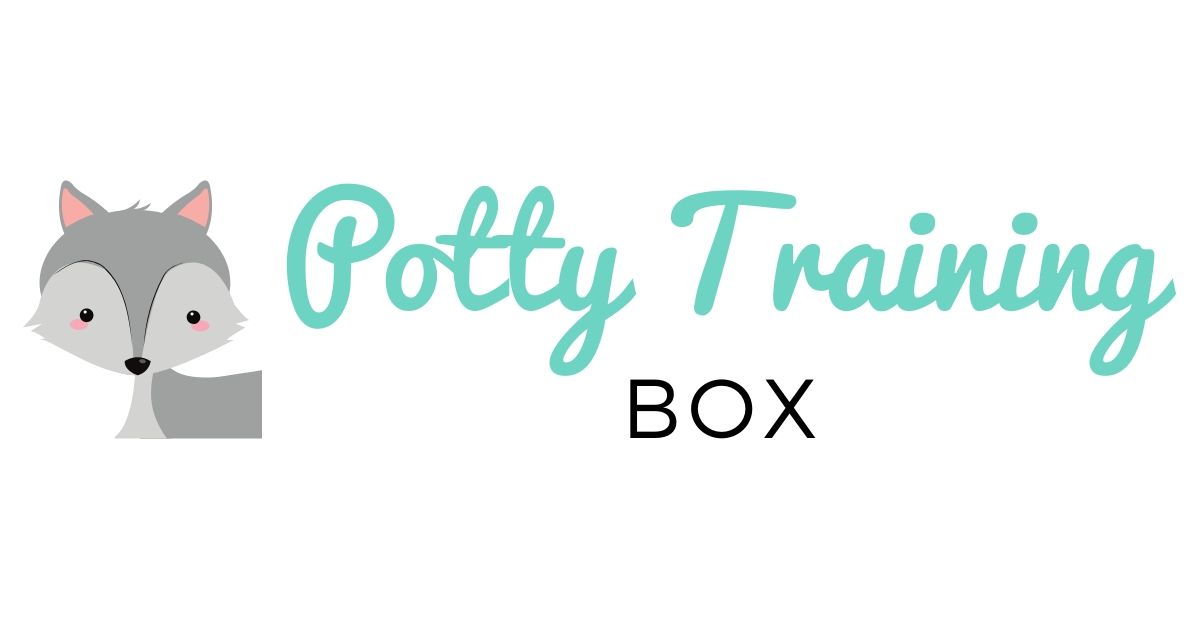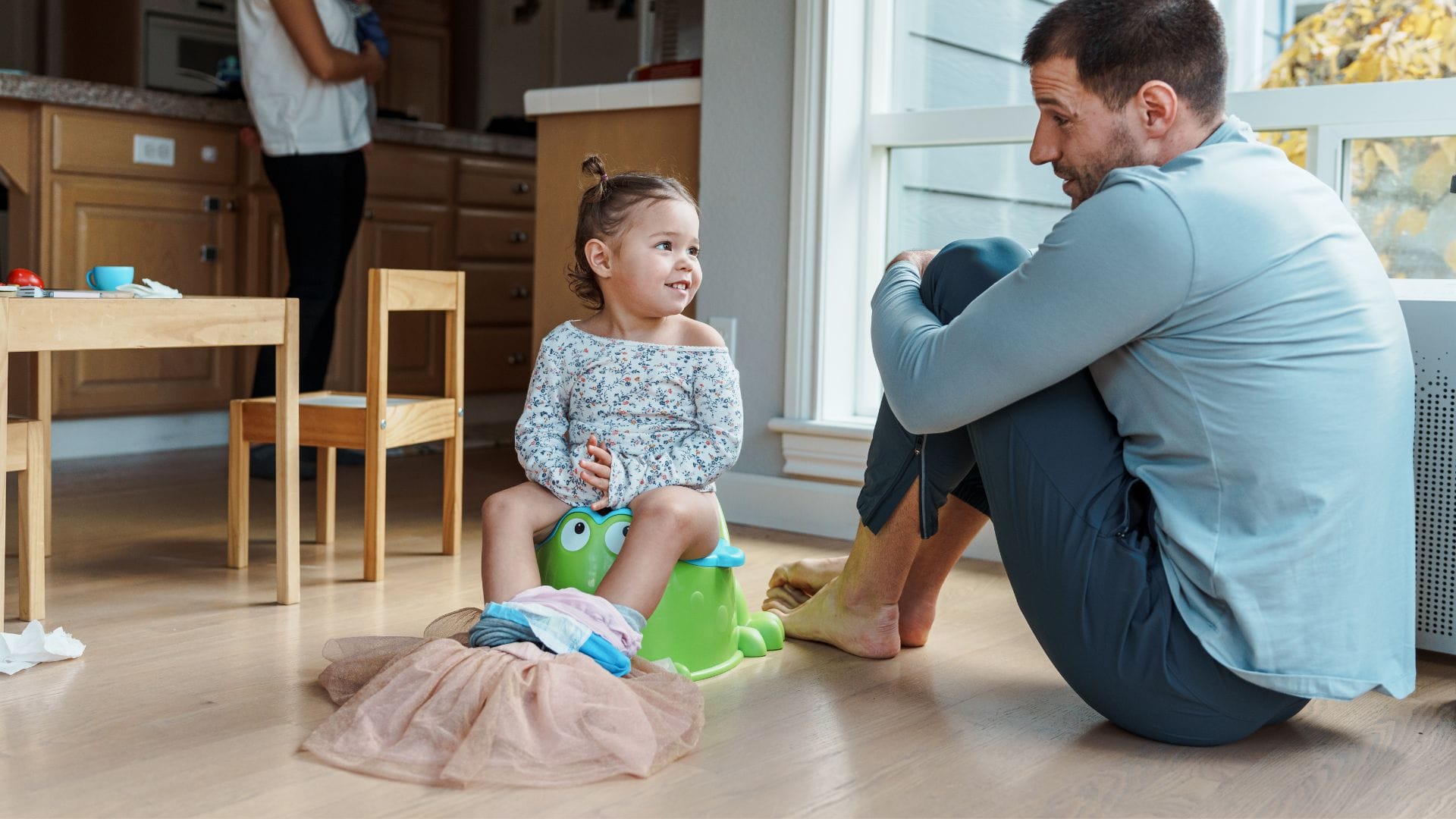The ultimate guide to potty training for toddlers – Potty training is a major milestone in a toddler’s life, but it can also be a challenge for parents. In this blog/online guide, we share the best tips and strategies to potty train your child without stress and frustration.
Tip 1 in this guide: When to start with your little one?
It’s important to know when your toddler is ready to begin with potty training. Usually, parents start between 18 and 24 months with Potty Training for toddlers. We recommend starting with our box between 2 and 2.5 years because you have the most chance of success, but there are of course always children who are faster or take a little longer to become potty trained.
Some signs that your child is ready include a longer dry period, interest in the toilet or potty, and the ability to pull down their own pants. But in addition, there are 7 other signals to look out for. And if you recognize 3 or more signals in your child, you can basically start.
In this article, you can read about the signs to look out for.
Tip 2 in this guide: Step-by-step approach
The key to successful Potty Training for toddlers is a step-by-step approach. Start by introducing the potty to your child and let them get familiar with it, good preparation is half the battle. Then, establish regular visits to the potty and encourage your child to use it. Be patient and consistent, and praise and encourage your child with every successful attempt. If you have no idea how to start Potty Training for toddlers, we have created a 7-day step-by-step coaching style plan to teach you how to potty train your child.
Here you can find more information about our method.
Tip 3 in this guide: Rewards and punishments
Many parents wonder if using rewards or punishments is effective when Potty Training for toddlers. While some children are motivated by rewards like stickers, candies, or something else, others may feel stressed by the pressure to perform. And that’s totally not what you want as a parent. The same goes for punishments – it can make your child anxious and slow down the potty training process, so we’re not in favor of it. Instead, it’s important to support your child in a positive way and reward them for every successful attempt or step closer to the end goal.
Read here why a reward chart sometimes doesn’t work.
Tip 4 in this guide: Common challenges
Potty Training for toddlers is not without its challenges. Common problems include regressions, accidents, and refusal to use the potty. It’s important to be patient and understand that these challenges are part of the learning process. Talk to your child and try to figure out why they’re struggling with potty training. It could be that they’re anxious due to a bad experience or that there’s constipation causing discomfort. Also, give your child time to get used to the idea of potty training, which is why good preparation is extra important.
In this article, the 5 common challenges in potty training are listed.
Tip 5 in this guide: Nappy use
The use of nappies can affect your child’s potty training. Some children feel more confident and comfortable in nappies and refuse to use the potty at first. To address this issue, you can reduce the use of nappies by only using them for sleeping (call them sleeping pants). Say goodbye to nappies together with your child, for example, so they’re also out of sight.
Give your child enough time to get used to the potty and continue to encourage them to use the potty and the toilet. It can also help to promote a positive attitude towards potty training by using books and toys that encourage potty training. Sometimes it also helps when children see children without nappies, as they also want that!
Tip 6 in this guide: Nighttime potty training for toddlers
Nighttime Potty Training for toddlers actually doesn’t exist and can also take more time and patience than daytime potty training. Most children become fully nighttime trained after three or four years, but it can even be at the age of 6 or 7. To help your child become nighttime potty trained, consider limiting the intake of liquids a few hours before bedtime and reminding them to use the potty before they go to sleep. When there’s a success and your child has stayed dry at night, it’s motivating and good to reward this.
More tips on encouraging nighttime potty training can be found here.
Tip 7 in this guide: Dealing with regressions
Regressions are normal during Potty Training for toddlers and can occur for various reasons, such as stress or changes in your child’s environment (this can be the smallest change like a new teacher). It’s important to stay calm and not punish your child when it happens. Instead, offer support and encourage your child to use the potty again. React extra enthusiastically to the successes and ignore the accidents as much as possible. Talk to your child and try to figure out what’s going on and how you can help.
Read here what you can do in case of a regression in potty training.
If you want more potty training tips for Potty Training for toddlers, you can also check out our Instagram or Facebook page.


